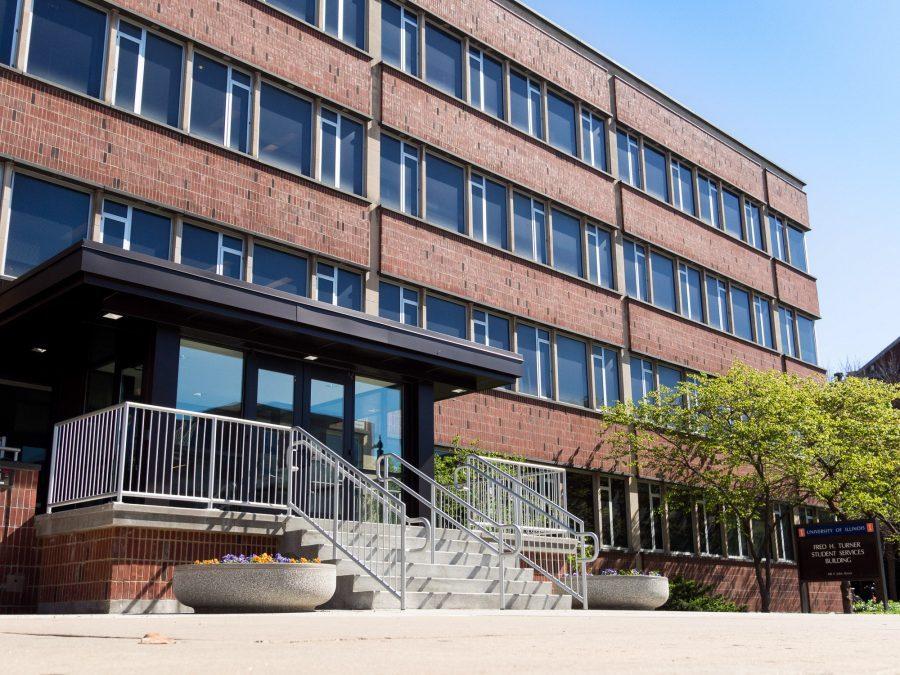Counseling Center kicks off National Suicide Prevention Week
The front of the Fred H. Turner Student Services Building on John St. on May 3, 2016.
Sep 13, 2017
This week marks the beginning of the National Suicide Prevention Week, and with that, the Counseling Center is working to educate the campus on self-worth and how one can help in a potentially fatal situation.
According to a study by Emory University, each year, there are more than 1,000 suicides on college campuses and approximately 10 percent of college students have a plan on how to carry out their suicides.
“Suicide is the second leading cause of death for people ages 18 to 24,” said Nichole Evans, Assistant Director of Outreach and Prevention at the Counseling Center.
The Counseling Center has organized a week of events to raise awareness and spread the word about the resources that are available on this campus.
On Wednesday, for example, they’ll be located at Food for the Soul at the Bruce D. Nesbitt African American Cultural Center, where lunch will be provided.
Get The Daily Illini in your inbox!
“Often, when students are having suicidal thoughts, they’re ashamed and don’t want to tell anyone, but they need to know they’re not alone and that the thoughts they are having are usually caused by a treatable mental condition,” Evans said.
She said that it’s important to know that help is available and that if you’re having suicidal thoughts, you should reach out to a counselor right away.
The Counseling Center is located at 610 E. John St. in the Student Services Building on the second floor. They are open from 8 a.m. to 5 p.m. and offer same day appointments. The Crisis Line is available twenty four hours at 217-359-4141.
“If you call and those appointments are full, tell us that you need to speak to someone that day,” Evans said. “Having suicidal thoughts is an emergency, and we’ll get you in as quickly as we can.”
Evans said that when it comes to intervening with someone who may be suicidal, asking them if they are okay is okay.
She said that although, it’s improving, there’s still a certain stigma around talking about suicide.
“If you have a friend or know someone you’re concerned about, reaching out to them can make a big difference. If someone is actively suicidal and they are at immediate risk, obviously call 911 right away,” Evans said.
If you’re unsure about how to approach someone or you’re afraid you won’t know what to say, the Counseling Center also offers Kognito At-Risk, which is an online training program available to all students, faculty and staff on their website. It walks you through what to say and how to connect people to resources.
“The most important thing to know is that there’s hope,” Evans said. “Sometimes it’s hard to see that if you’re depressed and things aren’t going well for you, but things change and can get better if you take that first step to get help.”






